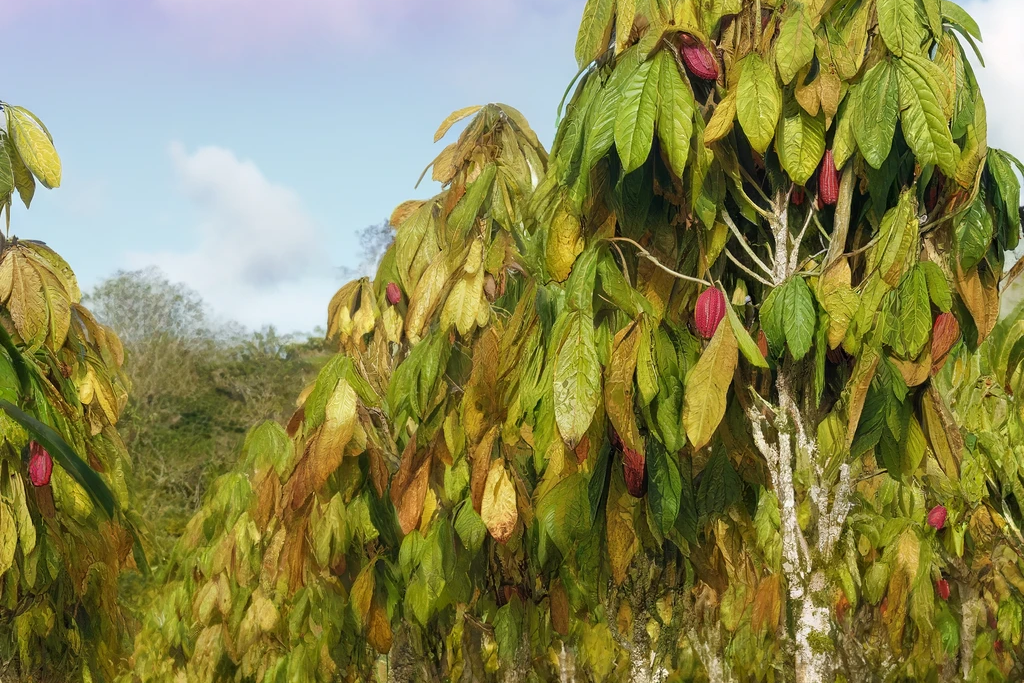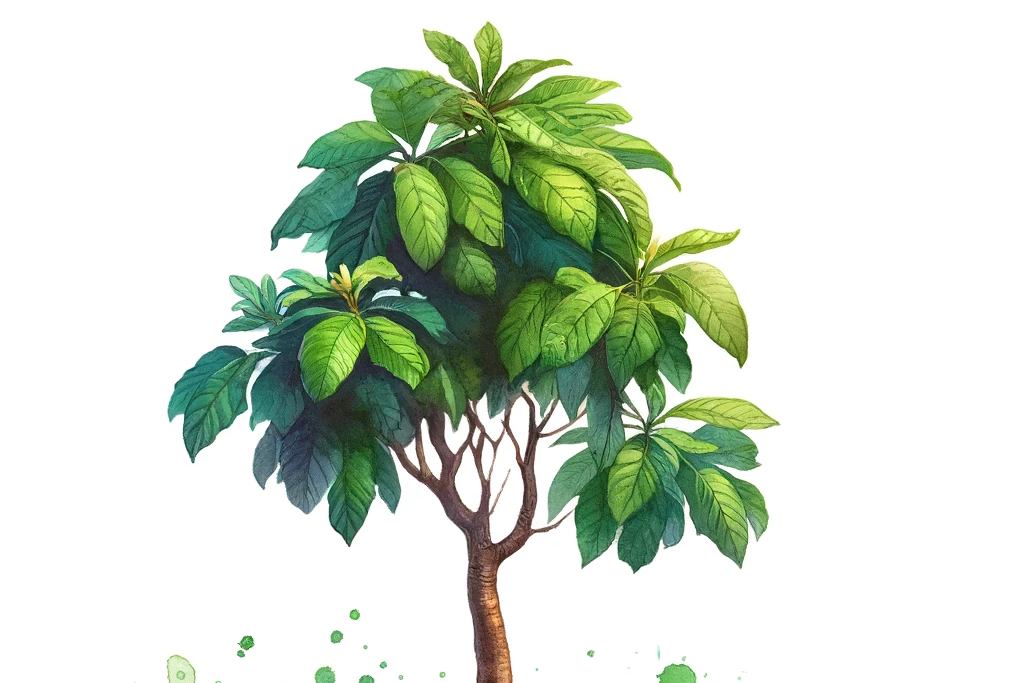Shea tree

Introduction: The shea tree - a gift of nature
The shea tree (Vitellaria paradoxa) is native to the savannah regions of Africa and is known for its rich fruits, from which shea butter is extracted. This natural resource is valued in cosmetics, medicine and even nutrition. But how does this versatile tree affect our dogs' health? Let's start with an overview of the components of the shea tree and their potential impact on dogs.
The components of the shea tree and their safety for dogs
Shea butter: a blessing for skin and coat
Shea butter, the fat extracted from the nuts of the shea tree, is known for its moisturizing and anti-inflammatory properties. When applied topically, shea butter can soothe dry skin in dogs and keep the coat supple. There is no evidence that shea butter is toxic to dogs when used externally. However, care should be taken to ensure that dogs do not lick or eat it in large quantities, as this could lead to gastrointestinal problems.
The fruits and leaves: rich in nutrients, but to be enjoyed with caution
The fruits of the shea tree are rich in vitamins and fats. In small quantities, these can be safe for dogs, but there is too little research on the tolerance of raw fruits or leaves for dogs. Therefore, caution is advised and it is recommended that dogs are not fed unknown plant parts without first checking with a vet.
Potential benefits of shea butter for dogs
- Skin care: Shea butter can help soothe dry skin and keep the coat shiny and smooth when used regularly.
- Natural healing: Thanks to its anti-inflammatory properties, shea butter can help soothe skin irritations and minor wounds.
Risks and warnings
While shea butter is safe for topical use, dogs should not consume it in large quantities. Ingesting large amounts of fat, even if it is a natural product like shea butter, can lead to gastrointestinal problems, nausea or even pancreatitis.
The shea tree and its importance for dogs
The shea tree has both potential benefits and risks for dogs. Shea butter, used correctly, can be a boon for skin and coat care. However, the fruits and leaves of the tree should not be fed without first consulting a professional. Ultimately, the shea tree can make a positive contribution to your dog's care if used properly, but care must be taken when using it.
If you notice any signs of hypersensitivity or poisoning in your dog, you should see your vet immediately. We are not a substitute for a vet, but we try to be as accurate as possible. Every dog reacts differently and we recommend you get a second opinion or consult your vet if in doubt.
Stay healthy and take good care of your four-legged friend!😊
Similar to Shea tree
The main alkaloid in cocoa beans, theobromine, is responsible for the bitter taste of dark chocolate. For humans, theobromine is harmless in moderate amounts, but for dogs it poses a serious...
The coconut palm is more than just a vacation memory. Its fruit, water, oil and even the fibers are used in a variety of ways in everyday human life. But what about our dogs? Can they also benefit...
The mango, known for its sweet taste and juicy texture, is a popular fruit with many people around the world. But what about our four-legged friends? Before we dive into the specific components of...
When it comes to feeding our dogs, we are always on the lookout for healthy and nutritious options. Avocado, rich in vitamins, minerals and healthy fats, may seem like an attractive choice at first...



